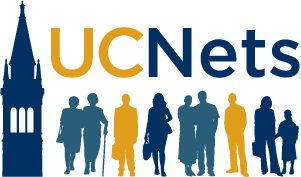About the Study
The UC Berkeley Social Networks Study, or “UCNets” was initially a five-year panel study funded by the National Institute on Aging, R01 AG041955-01, and by P30AG012839. People in two age groups (cohorts) – 21-30 year-olds and 50-70 year-olds — were interviewed three times, beginning in Winter-Spring 2015, Winter-Spring 2017, and Winter-Spring 2018 – allowing us to test how changes in social connections happen and affect health.We are recruiting from 6 San Francisco Bay Area counties: San Francisco, Marin, Alameda, Contra Costa, San Mateo and Santa Clara. During the first wave we interviewed most respondents in person, while the other participants filled out a self-administered web survey. In the second and third waves, some of the participants who were interviewed in person were given a survey online.
We also held 3 waves of a sample of LGB 50-70 year olds in the SF Bay Area as well. In the fall of 2020 we also collected data (n=600) to explore mental health and network consequences of the COVID-19 pandemic shut-down. The ego (main) survey data for this COVID release are available by request; the names (alters) data are still being cleaned.
While no projects are currently active, there is always the possibility of projects in the future. We are pleased to have a mutually respectful relationship with our excellent participants for future research.
UCNets now also exists as an international community of ego-centric scholars, and continues to receive support from the National Institutes on Aging.
UCNets was the first study of its kind in the country and quite possibly, in the world. Unlike many other studies, it has a young cohort as well as an older cohort. It has four overarching aims:
- To accurately and fully describe the social ties of a younger group and of an older group of Bay Area residents, paying particular attention to how those relationships change as people’s lives change.
- To identify the causal connections among life changes, personal ties, and health. How, for example, does getting a new job or retiring affect the number or types of people a person is involved with and in which ways? How do those aspects of people’s ties in turn affect their well-being, and in turn, does that well-being translate into better ties? The panel structure of this study will allow researchers to untangle the complex patterns of cause and effect.
- Identify standard patterns and variations in when and how personal networks respond to life events (e.g., job transitions, marriage, deaths of intimates).
- To test the practicality and validity of using web-based network numeration techniques. The project incorporates an innovative switching design from face-to-face to web interviewing.
